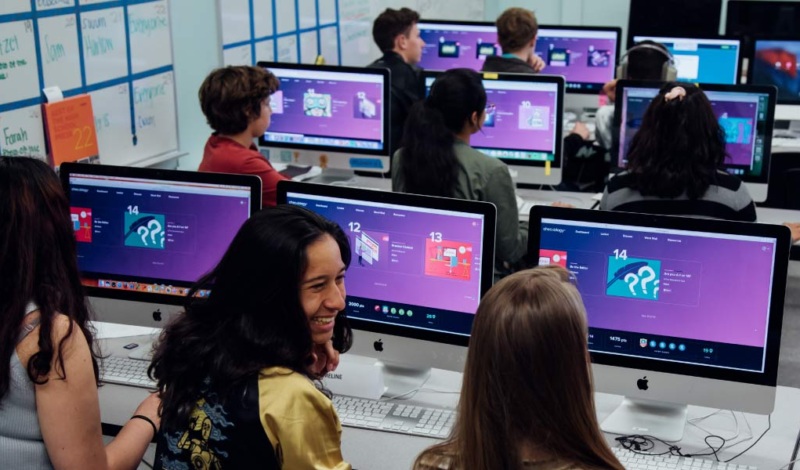Edutopia showcases the News Literacy Project
Edutopia.org, a website that highlights “what works in public education,” has posted an article showcasing the News Literacy Project and a primer for teachers.
“A Program Teaches Teens What to Believe in the Digital World” focuses on projects done by students in News Literacy Project classes at Walt Whitman High School in Bethesda, Maryland. It links to a video created by the project that features exemplary student work.
Edutopia is sponsored by the George Lucas Educational Foundation and includes the Edutopia.org website, Edutopia magazine and Edutopia video. Its success stories and best practices on Edutopia.org revolve around six core concepts, including project-based learning, the intelligent use of technology, and social and emotional learning.
The report on the News Literacy Project includes guidance for teachers to help students determine what to believe in a digital world, one of the project’s core goals:
- Think critically about news and information: Who created the information? Can you tell? For what purpose? Is the information verified? If so, how? What are the sources? What is the documentation? Is it presented in a way that is fair?
- Ask yourself, “What is it that I’m viewing?”: Is it news? Opinion? Gossip? Raw information? Advertising? Propaganda? How can you tell?
- Look for bias in news and information: Watch for loaded or inflammatory words. Does the author clearly have an agenda? Is more than one side of the story or argument presented? Is the subject of the report given a chance to respond?
- View high-quality journalism as a benchmark against which to measure other sources of information: This step includes an independent and dispassionate search for reliable and accurate information, verification rather than assertion, a commitment to fairness, transparency about how information was obtained, and accountability when mistakes are made.
- Beware of information found on Wikipedia; it can be changed by anyone at any time. This fact makes it uncertain that you are getting accurate information at a given moment. However, the primary sources linked in Wikipedia entries are a rich trove of reliable information.
- Act responsibly with information you share and create: Exercise civility, respect, and care in your online communications; remember that information on the Internet lives forever and you have no control over who sees it or what they do with it. Do not expect e-mails to be private.
- Do not allow yourself be fooled: Nobody likes to be taken in. If it sounds too good or too incredible to be true, it probably isn’t true. Good places to check urban myths are the Annenberg Public Policy Center’s FactCheck.org and Snopes.com.

